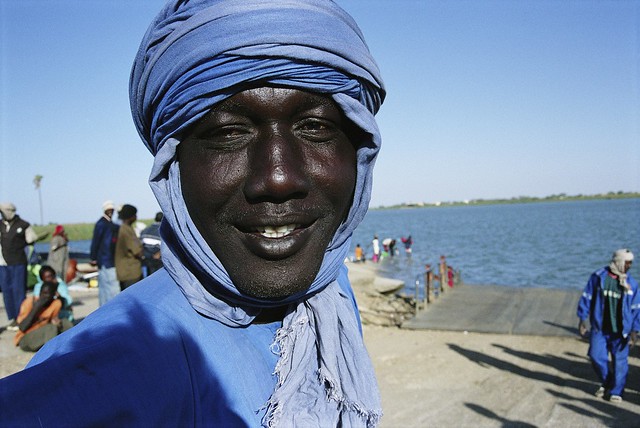Macroeconomic Context
Recent Developments: Growth estimated to have slowed to 4.0% in 2024, down from 5.7% in 2023, largely due to falling global iron ore prices and slower mining production. Despite accounting for only 7% of the economy’s output, the mining sector contributed the most to growth among all sectors. Services recovered modestly, while agricultural output was affected by flash floods. Slower mineral export growth and high import growth, driven by mineral oil and lubricants, contributed to the slowdown. Private consumption growth rose slightly, and investments in iron ore mines supported growth.
The fiscal deficit reached 4.8% of GDP in 2024, exceeding the budget target. Weaknesses in commitment control and oversight institutions, including supreme audit institutions and parliament, coupled with legislative deficiencies in public finance management, contributed to inefficient budget execution. Revenues improved sharply to 8.8% of GDP (from 7.4% in the previous year) due to tax policy reforms – a trend that must continue to finance Sierra Leone’s substantial needs. The deficit was primarily financed through domestic short-term securities. Debt distress risks remained high, with the cost of domestic debt rising to an average annual interest rate of 40%.
Monetary policy tightened by 250 bps in 2024 to address inflation, which declined from 52.2% in December 2023 to 13.8% in December 2024. The inflation slowdown was supported by a stable exchange rate and lower international food and energy prices. Fiscal dominance limited private sector credit, while Bank of Sierra Leone’s (BSL) purchases of government securities hindered monetary policy effectiveness.
Despite improvements in the current account, gross international reserves fell to cover only two months of imports in 2024, down from 2.6 months in 2023.
Outlook: Growth is projected to rebound to 4.4% in 2025 and reach 4.7% by 2027, driven by the resilient services, agricultural productivity improvements, and continued mining expansion. Lower inflation is likely to support household spending and retail trade, while agricultural value chain development and ‘Feed Salone’ initiatives will bolster productivity.
The fiscal deficit is expected to narrow, benefiting from improvements in revenue collections and further rationalization of spending, especially wages and subsidies. Even so, debt is expected to remain at high risk of distress, requiring stronger and more credible fiscal consolidation and expenditure control measures. These include reforms to contain subsidies, streamline tax expenditures, eliminate recurrent budgetary overruns, and address shortcomings in the implementation process, with stronger oversight of expenditure overruns than seen in past years.
Risks and Challenges: This outlook is subject to several downside risks. Persistent fiscal overruns could undermine both fiscal and debt sustainability, ultimately jeopardizing macroeconomic stability. External risks include fluctuations in global commodity prices, global demand, and higher imported inflation. Additionally, weather shocks may hinder agricultural growth and poverty reduction.
Political Context
Sierra Leone's recent history has been marred by a devastating civil war that ended in 2002. Despite significant economic growth in the years following, the country still grapples with the lingering impacts of the war, recurrent pandemics, and polarized politics, which hinder its progress. The majority of Sierra Leoneans are engaged in subsistence agriculture, yet the nation boasts abundant natural resources, including iron ore, diamonds, gold, bauxite, and rutile. Post-war governments have faced the formidable challenge of reconstructing the nation's physical and social infrastructure and promoting reconciliation.
On June 24, 2023, Sierra Leone conducted its sixth general election since the end of the civil war. The incumbent, President Julius Maada Bio of the Sierra Leone People’s Party (SLPP), secured re-election with 56% of the vote. The ruling party also gained a majority in Parliament with 81 seats, surpassing the opposition All People’s Congress (APC), which won 54 seats. The current Parliament, unlike its predecessor, which comprised four political parties and independents, is now a two-party legislature. Post-election tensions between the ruling and opposition parties posed a risk to national stability. However, intervention by regional organizations such as the African Union and ECOWAS, with support from the Commonwealth, led to the signing of the 'Agreement for National Unity' in October 2023. This accord has been pivotal in maintaining peace.
The government unveiled the new Medium-Term National Development Plan (MTNDP) for 2024-2030, which outlines the administration's short-term and long-term objectives.
Development Challenges
Until the outbreak of Ebola in 2014, Sierra Leone was seeking to attain middle-income status by 2035. However, the country still bears its post-conflict attributes of high youth unemployment, corruption, and weak governance. Problems of weak infrastructure and widespread rural and urban poverty persist, despite remarkable strides and reforms.
Last Updated: Apr 01, 2025








